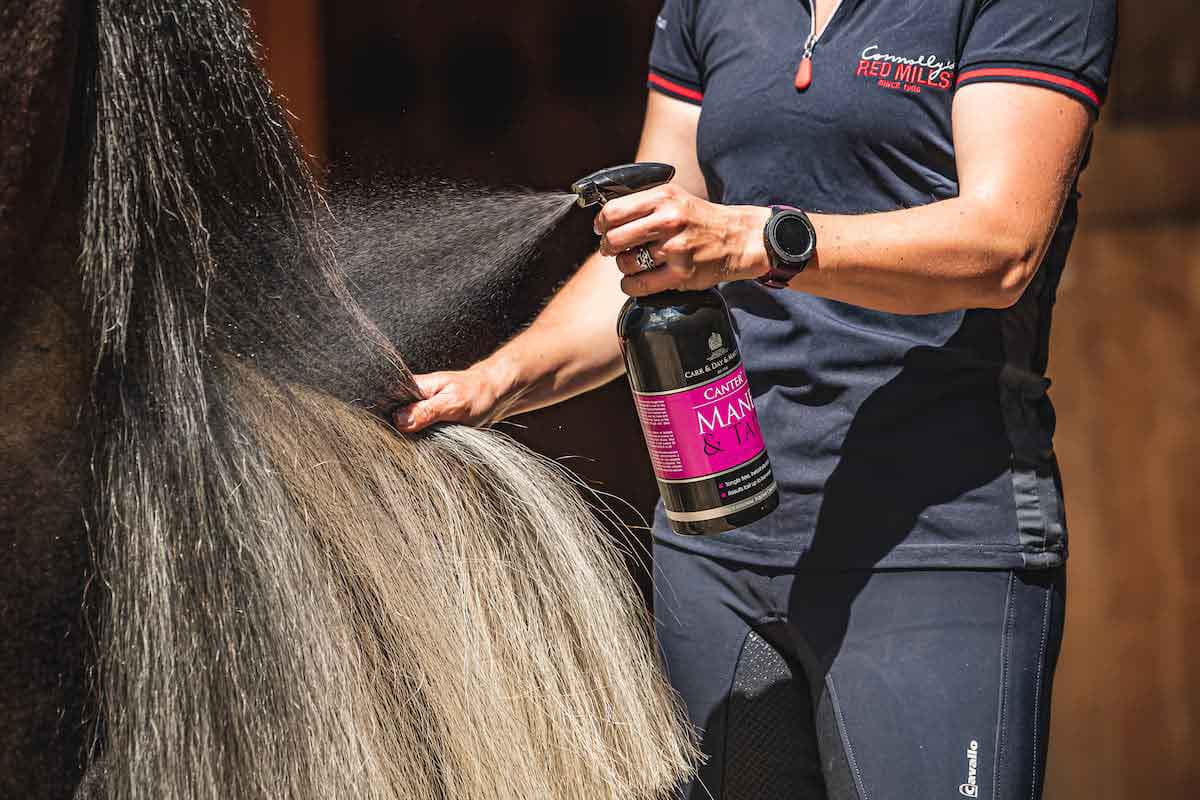Aodhagán Conlon discusses the coach and athlete relationship, and the one thing trainers get wrong when it comes to dealing with jockeys.
If anyone has been watching ‘The Last Dance’ on Netflix detailing the untouchable Chicago Bulls of the 90’s (if you haven’t, you should), they will have had a front row seat to the fascinating psychology of the ultimate winner, Michael Jordan. Jordan is undoubtedly the star of the show, however, I feel that the role of the man coaching the team, Phil Jackson, has been somewhat understated. As well as directing the incredibly driven, and often confrontational Jordan, Phil Jackson had to manage the more sensitive character of Scottie Pippen, and the unique and charismatic flair of Dennis Rodman, amongst a squad of many other personalities.
A striking part of the documentary comes when Jackson is in his first season as head coach and changes the way the Bulls play. Up until then, the team had been set up largely with one purpose; to feed Jordan the ball. While this had made Jordan the MVP (Most Valuable Player) of the league, there was a ceiling to this tactic. Teams were starting to figure out that to disrupt the Bulls, you simply had to disrupt Jordan, and the Bulls had failed to win an NBA championship. To achieve a more successful level of performance, Jackson introduced a ‘triangle’ method of play. I have a limited knowledge of basketball, but it basically seems to be a pattern of play between three players which favoured the player in the best position to score – regardless of who that player was. Jackson got Jordan to understand that they could not win a championship unless the whole team played as a unit. Jordan played (a little) less selfishly, put trust in other players to do their job, and the team went to another level. It is a remarkable bit of coaching that led the Bulls to 6 NBA championships, and for me, underlines the importance and influence a coach can have on athletes within an arena, and ultimately their level of success.
The Trainer-Jockey Dynamic

Understanding when an athlete needs a bollocking and when they need an arm around the shoulder is a difficult balance to strike, and some coaches may lean towards one way rather than the other. As with all people, different athletes need different incentives. The coach-athlete comparison in racing is the trainer-jockey relationship, and is a fascinating dynamic. Certainly, during my time riding, my relationship with trainers would have a massive effect on how I would ride. I was no Michael Jordan, and even the tone of the last words when getting a leg up (e.g., ‘Have fun’ or ‘Don’t f**k up’), could have a big effect and change my mindset towards a race in a instant. I realise that I may have been more impressionable than others (hence why I’m writing this blog rather than still riding) but having spoken to many other jockeys, I’m confident in saying that the quality of the trainer-jockey relationship is a crucial influence on how a jockey performs.
A few years ago, as part of my psychology degree, my research looked at the challenges facing jockeys in the UK. Throughout six in–depth interviews of flat and jump jockeys, opinion was unanimous that their working relationship with their trainer was the most influential factor as not only a stressor, but crucially, as a support. This was in terms of both performance, and overall well-being. This is reflected in most sports with the coach-athlete relationship described as being central to being competitive at high level sport. It is proposed that the quality of the relationship is measured by 1) emotional closeness, 2) commitment to a long term partnership, and 3) complimentary interactions during training (Adie & Jowett, 2010; Isoard-Gautheur et al., 2016).
As trainers are directly responsible for the jockey’s reward system (financial, promotional, job security etc.), for the most part, the power in the relationship favours the trainer. A jockey is generally more reliant on a trainer than vice-versa, so any threat to the stability to this relationship (poor performance outcomes, negative feedback) would be appraised as extremely harmful to a professional jockey. While yes, the power is with the trainer and this can be viewed negatively, there is also a flipside. A compliment or words of encouragement can mean much more when coming from a trainer. In my research, jockeys reported that trainers who invested in the relationship, fostering an alliance or a partnership, built a quiet confidence in the jockey which effected how they performed. All participants reported faith shown by trainers as having an empowering effect, and they felt performance improved as a result:
‘He wouldn’t put me under massive amounts of pressure and I think, well I know, that you ride better for that’.
The quality of the relationship can also dictate how the athlete/jockey approaches a competitive situation. In elite sport, a high quality coach-athlete relationship is positively linked with mastery approach goals. Here the athlete sees a situation as a challenge and adopts goals in an attempt to reach their highest potential. In contrast, the perception of a poor quality relationship may cause the athlete to adopt avoidance strategies. Here an athlete views a situation as a threat, can attempt to conceal their perceived deficiencies, which can inhibit progress towards their full athletic potential. Interestingly here, approach–based behaviour and avoidance based behaviour can actually change your physiology as your nervous system responds to perceived demands (think predator versus prey). If you feel threatened by a situation this will make your decision-making poorer and reaction times slower, critical skills in any sport.
The quality of the trainer-jockey relationship therefore must not be underestimated. The better the relationship, the better the performance. So, what is the one thing that trainers get wrong when it comes to jockeys? Well in my opinion, I do not think trainers value what they say to jockeys enough and how much that can affect their performance. This is not a criticism, quite the opposite. I would look at this as an opportunity for a trainer to increase the number of winners that they can have. I do not propose a wholescale personality change and acknowledge that some jockeys do need a bit of waking up and require a bollocking from time to time. But taking a little bit of time in understanding what makes individual jockeys tick, and then choosing when and what to say carefully, trainers can increase the likelihood of a jockey performing better and ultimately, riding more winners.

Aodhagán Conlon is former professional jockey who is currently training to become a chartered sports psychologist, was well as studying for a PhD at the University of Bath.
Follow him on Twitter @aodhaganconlon or Instagram @thebreathpsych.







